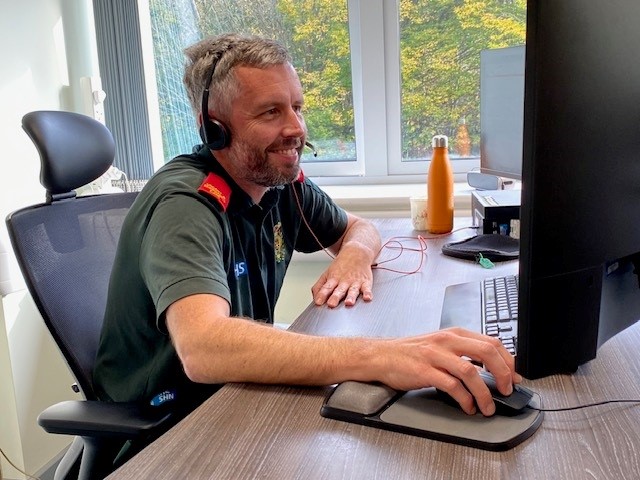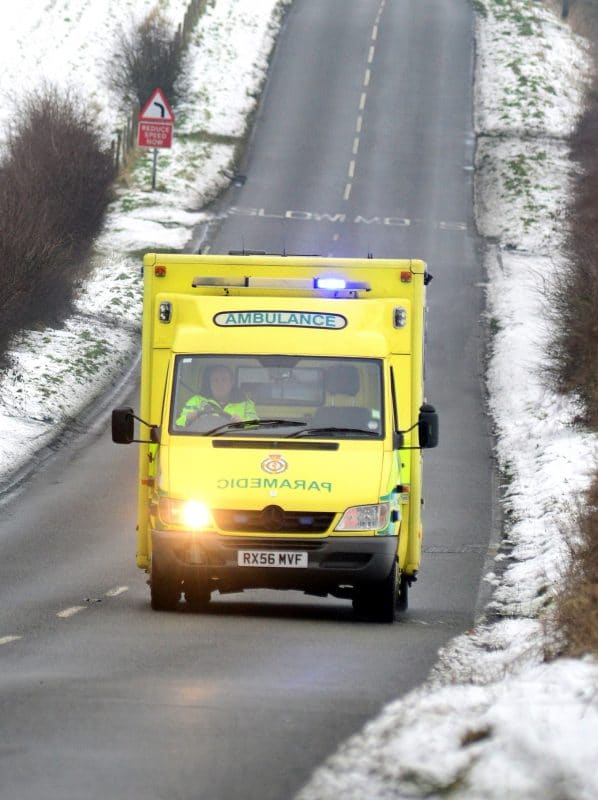 Ambulance, hospital and community trust teams across the south east will be working in closer partnership than ever before to support patients this Christmas and winter period.
Ambulance, hospital and community trust teams across the south east will be working in closer partnership than ever before to support patients this Christmas and winter period.
South East Coast Ambulance Service (SECAmb) has now established seven multi-discipline clinical hubs designed to ensure patients are receiving the right response, first time and to help reduce the number of patients attending emergency departments (EDs).
As SECAmb works closely with its hospital and community teams in the Unscheduled Care Navigation Hubs (UCNHs), the public is asked to show its support during the busy period by only calling 999 in an emergency and by making use of alternatives for more minor complaints, including speaking to a GP or pharmacist or by visiting NHS 111 Online for help and advice.
 The public’s support, alongside the hub approach and hard work of SECAmb’s teams right across its region, including in its emergency operations centres and colleagues and volunteers out on the road, will ensure SECAmb is as best placed as possible to respond to its most seriously ill and injured patients this winter and beyond.
The public’s support, alongside the hub approach and hard work of SECAmb’s teams right across its region, including in its emergency operations centres and colleagues and volunteers out on the road, will ensure SECAmb is as best placed as possible to respond to its most seriously ill and injured patients this winter and beyond.
The clinical hubs vary in design but involve the Trust’s advanced paramedic practitioners and paramedics working alongside A&E consultants and practitioners as well as community specialists, including frailty leads, to improve patient care.
Together they are able to arrange appropriate alternative care instead of an ambulance response and also provide additional support to ambulance crews attending a 999 call.
The clinical hubs were initially trialled in Paddock Wood and Ashford in Kent from last year. From October this year, SECAmb has opened further UNCHs in Rochester in Kent, Polegate and Brighton in Sussex and two virtual model hubs covering east and west Surrey in Banstead and Tongham.
Together, the hubs are helping avoid thousands of ED admissions and arranging alternative care including same-day emergency care appointments or home visits for patients.
In its first year in operation the hub at the SECAmb’s Paddock Wood Make Ready Centre helped avoid more than 1,200 ED admissions. The team also handled more than 3,600 clinical consultations which resulted in supporting approximately 200 medical and surgical same-day emergency care appointments and arranging around 200 GP appointments in emergency departments on behalf of patients.
SECAmb Chief Operating Officer, Jennifer Allan said: “While we are busy all year round, we know that Christmas and the winter period can bring additional pressure on us and the wider NHS.
“I’m pleased that we have been able to set up the additional clinical hubs as planned and in line with our new clinically-led strategy. This partnership approach to care is key to ensuring patients receive the right help, first time.
“People can help by keeping 999 for serious illnesses and injuries only. Our 111 service and your own GP are there to help you when you need urgent advice. In an emergency we’ll be there but we will also be working hard to provide alternative advice and guidance both through our Emergency Operations Centre teams and via our hubs when an ambulance response isn’t required.”
SECAmb has a list of winter tips to help people keep themselves and others safe during the winter months.
SECAmb winter tips
- Take up the opportunity for flu and COVID-19 booster vaccinations when offered to protect yourself and others.
- Look out for any vulnerable family or friends – is there anything you can do to help them? Are there any hazards in their homes? Do their slippers need replacing?
- Wear appropriate shoes when outside especially during icy weather. We typically see an increase in slips and trips during colder spells
- Heat homes to at least 18C (65F). You might prefer your main living room to be slightly warmer
- Keep your bedroom at 18C all night if you can – and reduce drafts – if you’re under 65, healthy and active, you can safely have your home cooler than 18C, as long as you’re comfortable
- Keep active when you’re indoors. Try not to sit still for more than an hour or so
- Wear several layers of light clothes. They trap warm air better than one bulky layer
- Check your home medicines cabinet – is everything in date? Restock with essentials including cold remedies, pain killers, indigestion tablets and diarrhoea and constipation remedies
- Keep up to date with any repeat prescriptions you or your family or friends need – especially ahead of weekends and bank holidays
- When was the last time your vehicle was serviced? If your car is safer, so are you
- Carry some useful items in your vehicles such as a blanket and a spade for colder and possible snowy weather
- Wear bright colours at night. Can you be clearly seen as a pedestrian or cyclist? If walking at dusk or at night use a torch
- You should only call 999 in the event of a life-threatening or serious emergency
- People who are not facing a serious emergency should make alternative arrangements such seeking advice from a GP or pharmacist so we can focus on those who need us most. If its urgent but not an emergency you can call NHS 111 or seek advice from 111 online at 111.nhs.uk
